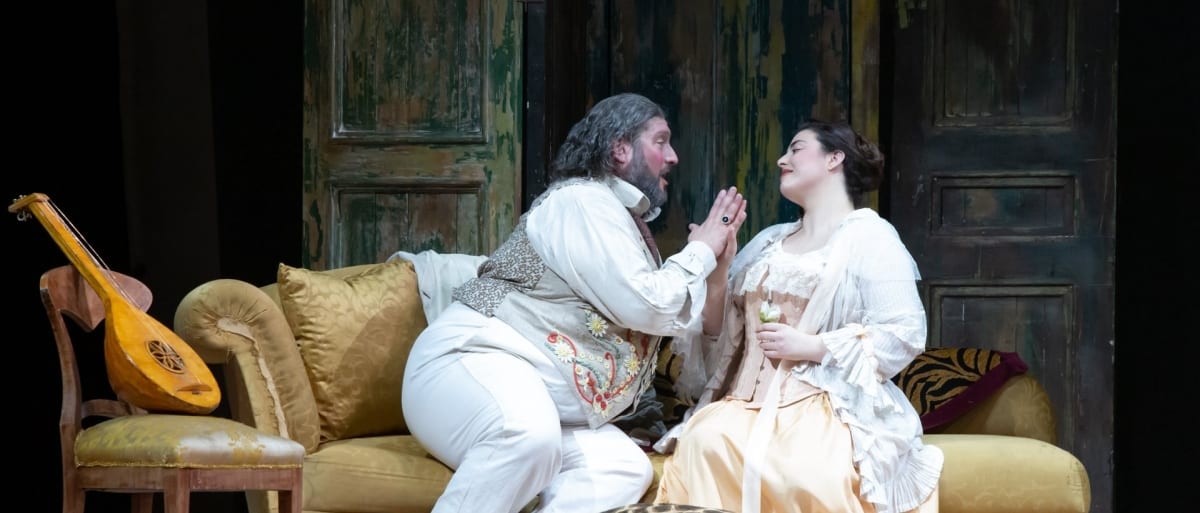Verdi’s last opera is a real artistic testament to the career of a composer who until the very end never ceased to experiment and evolve his musical approach in tune with the new expressive forms around him, while his inspiration remaining strictly rooted in his particular signature style.
Inspired by Shakespeare’s The Merry Wives of Windsor and helped by the genius of Arrigo Boito who wrote undoubtedly the best librettos the composer ever set to music, Verdi creates a universal character: a fat old man trying to seduce two young married women to access their husbands’ wealth. Falstaff is far away from the powerful tragic characters of Verdi’s previous operas: this is a story of ordinary people and during the performance we laugh a lot at the farcical old man pretending to be still a seducer. However, there is no contempt or judgement, Falstaff is after all a sympathetic character, full of self-irony. Verdi also mocks the other male characters, whose plots are sabotaged by the more cunning plots of the ladies, leaving only to the young lovers, Fenton and Nannetta, the most passionate passages.
This opera can offer a myriad of cues to a director, yet this is not what we see in this revival of the 2013 production for the Teatro Petruzzelli in Bari, originally staged by the late Luca Ronconi and here revived by Marina Bianchi. The action take place in a succession of uninspiring scenes, plain like the sheets hanging on the sides of the stages, with the singers entering and exiting on various complex machines (carts, tricycles, trolleys) suggesting the complexity of their plots. Only in the last act does the staging brighten up by the arrival of a suspended oak and a bit more fantasy in the costumes. However, sad to report, nothing comes across as striking or original, or even funny: Falstaff may be a shabby old man but is definitely not plain and is rather colourful.
Fortunately the cast, mainly young and local, infused the necessary life into the performance, helped by the dynamic conducting of the always brilliant Daniel Oren and the orchestra, and despite some lack of clarity in the usually impressive contrapuntal parts, and few coordination issues in the first concertato, they were able to engage with the audience and to overcome brilliantly the most difficult passages of the score.
Nicola Alaimo in the title role delivers a credible and engaging Falstaff both vocally and dramatically. Just as Shakespeare imagined, he is funny, angry, playful and almost willingly falls victim of the ladies revengeful scheming. Roberta Mantegna in the role of Alice captures the audience quite a few times with the intensity of her singing. Giorgio Misseri as Fenton delivers brilliantly his strong passionate lines, complemented by Jessica Nuccio as Nannetta who sings beautifully the Fairies’ Aria in the final scene with incredible pianissimo although her performance at times appears a bit restrained. Meg is correctly interpreted by Jurgita Adamonyte and Marianna Pizzolato gives us a witty and convincingly cunning Mistress Quickly.
Alessandro Luongo in the role of Ford didn’t come across as apoplectically angry as one expected from a jealous husband; however his interpretation is good over all. Interesting performances are also given by Saverio Fiore as Bardolfo and Gabriele Sagona as Pistola.
In the end the orchestra and singers compensate for the lack of inspiration in the production itself and they give the audience an engaging and pleasing experience of one of the greatest opera scores in existence.

